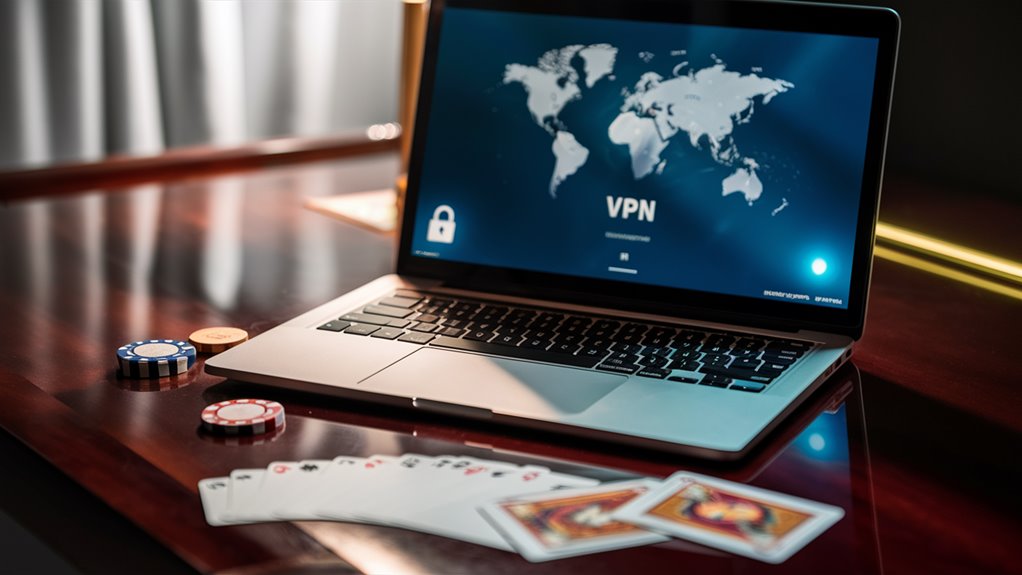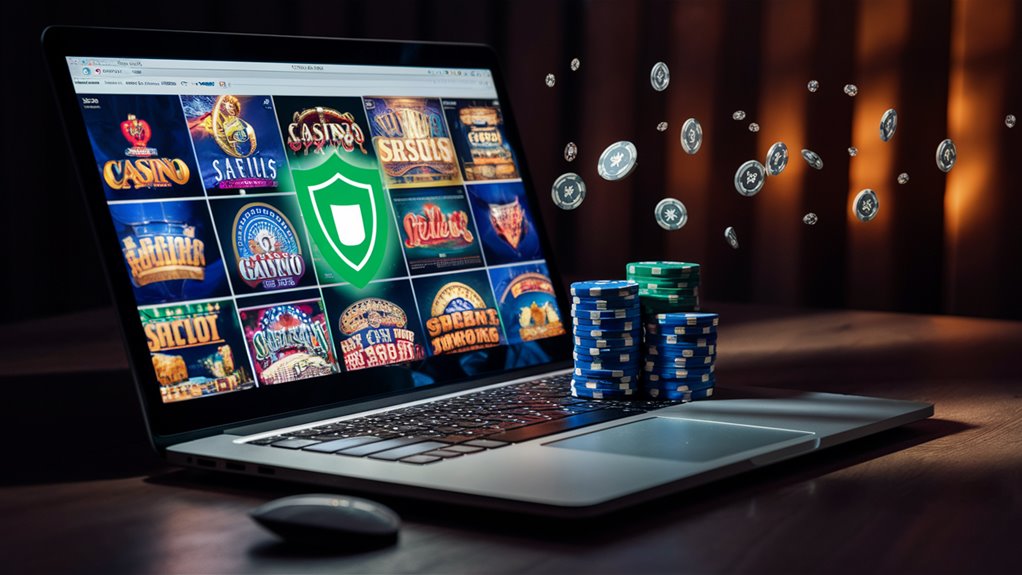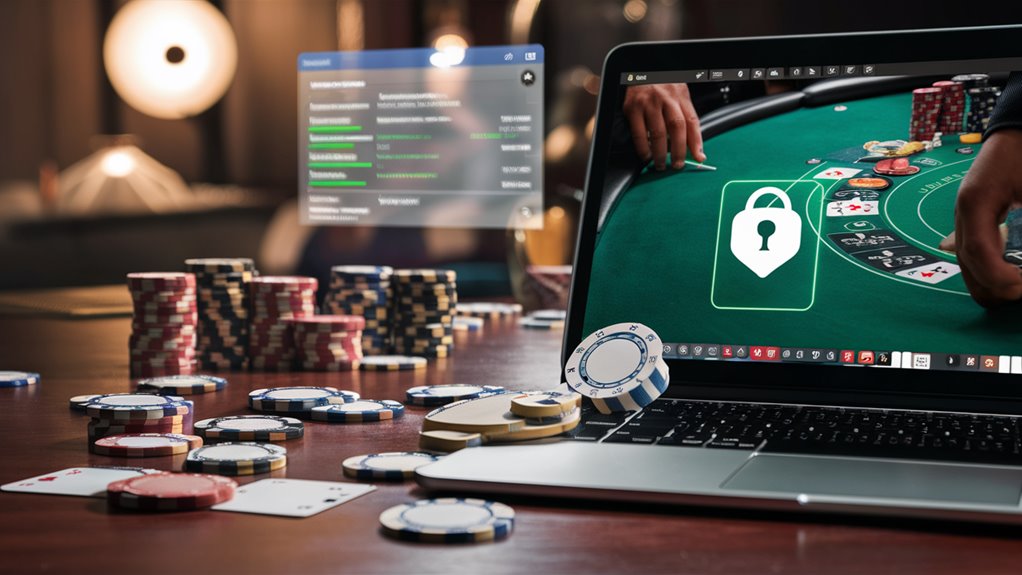
How to Use VPN for Safe Gambling

Main VPN Safety Parts
A strong gambling VPN should have high-end AES-256 encryption, a tough no-logs rule, and an inbuilt kill switch. These main parts keep you safe while using online gambling sites.
Getting Your VPN Ready for Gambling
First Steps
- Put in real VPN software from known sellers
- Turn on DNS leak block
- Set OpenVPN protocol 온카스터디
- Start two-factor auth
- Choose servers made for gambling
- Look for quick links
Extra Safety Steps
- Look for IP leaks
- Clear your web past often
- Keep track of your bets
- Maintain a strong, safe link
- Test VPN power before you play
Quick Links
Focus on these key points for best speeds:
- Use close servers for fast links
- Boost speeds
- Share of net speed
- Pick the best setup
- Test the link often
Stay Safe
Do these safety checks often:
- Update your VPN software a lot
- Check encryption rules
- Keep an eye on your link
- See how well servers do
- Record your sessions
- Have a backup link set
This full VPN setup keeps your online gambling safe and also keeps great speed and safety.
Why VPNs are Perfect for Safe Online Gambling
How VPNs Boost Online Gambling Safety
Better Privacy and Safety
VPN encryption adds key safety for online gambling more than basic privacy acts.
Advanced paths hide money moves and your info from bad folk watching gambling sites.
This safe link keeps ISPs, hackers, and others from seeing your gambling moves.
Reach Games Everywhere
VPN tech lets you safely reach gambling sites some places block but still following local rules.
Using servers in allowed places lets you play on sites once too far.
Hiding your IP keeps others from tracking where you are and watching your betting style.
Guard Against Online Dangers
Stop DDoS Attacks
VPN safety stops DDoS attacks that mess up key betting times. Switching servers keeps you safe by letting you change links if safety worries come up.
Many Safety Layers
- High-end encryption for money moves
- Hidden server links in safe spots
- IP hiding stops bad tracking
- Safe entry to global betting sites
- Quick threat stop during games
VPNs have many layers of safety, giving you unbroken access to gambling sites while keeping strong protection against online threats and data leaks.
Picking the Right VPN Provider
Choosing the Best VPN Provider

Main Safety Points
When looking at VPNs, high-end encryption is a must-have. The best AES-256 encryption gives top safety, while a tough no-logs rule makes sure what you do stays private.
A good kill switch is your last backup, cutting your net link if the VPN stops.
Servers and Speed
Quick servers and a solid net help all you do online run well. Look for providers that have servers everywhere with smart moving to cut delays.
Stable servers and steady speeds make your time online better. The best VPNs have a big net of servers with smart moving to keep delays low.
Tech Info and Protocols
OpenVPN protocol is still the best for safety and speed. Key features include DNS leak block and dedicated IP options to keep your access smooth.
Support for many protocols offers more choices across devices and nets. Advanced options like split tunneling and double VPN add more safety layers.
Help and Trustworthiness
Go for providers that offer 24/7 help and clear guides. Make sure the VPN’s service rules fit how you plan to use it.
Use money-back promises to fully test performance. Pick services with clear privacy rules and regular safety checks by outside groups.
Check each provider’s encryption standards, server range, and performance before you choose one.
Setting Up Your VPN Link
Full Guide to VPN Setup and Use
Main VPN Setup Steps
Secure VPN setup needs careful focus on tech details and safety rules. This full guide covers the main steps to start a strong VPN link that puts privacy and speed first.
Software Setup and Base Setup
Buy your VPN from the real seller, not from others.
Turn on the kill switch right after you set it up to keep your info safe if the link drops.
Pick a server spot that fits your needs and local rules.
More Safety Settings
Use the OpenVPN protocol, seen as the best for safety and speed. Turn on DNS leak block and IPv6 leak block to stay fully hidden.
Check for leaks with special tools before you start your main VPN uses.
Extra Safety Steps
Set two-factor auth for your VPN and pick AES-256 encryption rules.
When you can, set up split tunneling to manage traffic well – directing some apps through the VPN while others use a normal link. This way you get the best use while keeping strong safety rules.
Tech Info
- Protocol: OpenVPN (UDP/TCP)
- Encryption: AES-256-CBC
- Check: SHA256
- Handshake: RSA-2048
- Net Settings: IPv4/IPv6 two-part safety
Needed VPN Safety Rules
Needed VPN Safety Steps
Safe VPN use needs strong safety steps and tested safety rules.
Get your VPN’s kill switch ready to stop anyone from seeing your data if your link drops.
Turn on DNS leak block and use dedicated DNS servers to block ISP following.
Login and Access Safety
Use strong login steps for your VPN link.
Turn on two-factor auth when you can to make getting in safer.
Make hard to guess passwords with different letter types and change them every 60-90 days.
Don’t keep your VPN login details on public devices or share your login info.
Looking After Your Link
Test your VPN safety with IP leak testtools often. Harvesting Fleeting Tics for Splitting Bounties
Start your VPN link before you use apps or sites that need more safety.
Keep a stable, safe link all through your active times.
Pick safe encryption styles like OpenVPN or WireGuard for the best safety.
Turn on double VPN when on public Wi-Fi.
Regular Checks and Privacy Tests
Update your VPN software often to fix safety weak spots and make performance better.
Check your VPN provider’s no-logs rule through checks by outside groups.
Do regular system tests to keep your privacy safe and your link secure.
Watch how your VPN does and keep an eye on its safety with built-in tools.



